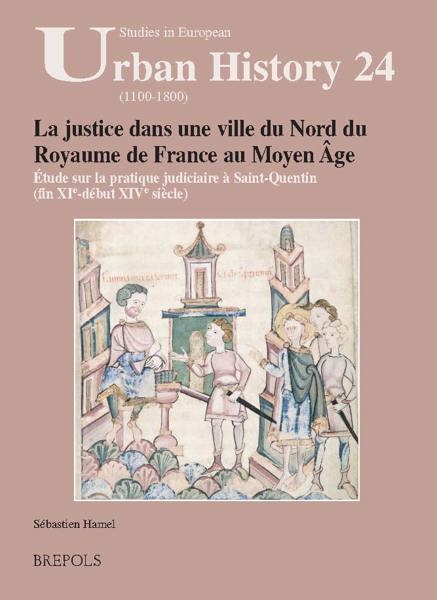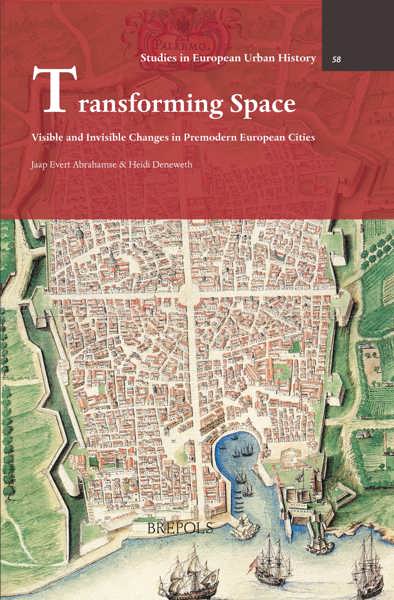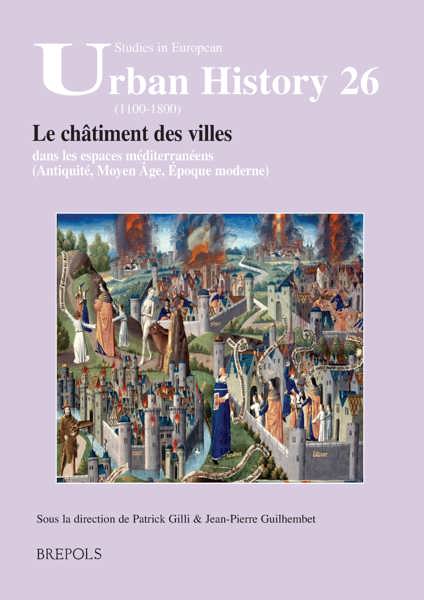
Inequality and the City in the Low Countries (1200-2020)
Bruno Blondé, Sam Geens, Hilde Greefs, Wouter Ryckbosch, Tim Soens, Peter Stabel (eds)
- Pages: 409 p.
- Size:178 x 254 mm
- Language(s):English
- Publication Year:2020
- € 105,00 EXCL. VAT RETAIL PRICE
- ISBN: 978-2-503-58868-1
- Hardback
- Available
- ISBN: 978-2-503-58869-8
- E-book
- Available
“De omvang van deze recensie doet geen recht aan het rijke palet dat de bundel de lezer biedt. Het is te hopen dat deze publicatie inderdaad het vertrekpunt vormt voor meer onderzoek, want hier is zelfs alleen voor de al uitzonderlijk lang verstedelijkte Lage Landen nog onvoldoen-de over bekend.” (Alberto Feenstra, in TSEG-The Low Countries Journal of Social and Economic History, 18/3, 2021, p. 169)
“As a self-declared modest stepping stone for academic debate on the connectivity between social inequality and urbanisation, Inequality and the City more than delivers on its promise.” (Ester Zoomer, in Low Countries Historical Review, 138/4, 2023)
“It is a valuable piece of meticulous scholarship on a critical topic, and I recommend it highly.” (Shennan Hutton, in Speculum 98/2, 2023, p. 572)
Bruno Blondé, Sam Geens, Hilde Greefs, Tim Soens and Peter Stabel are colleagues at the Centre for Urban History at the University of Antwerp. Wouter Ryckbosch is a member of the HOST, Research Group at the Vrije Universiteit Brussel. By questioning the long- term changes in the drivers ofsocial inequality, this book fits into the Research Agenda of Aipril (the Antwerp Interdisciplinary Platform for Research into Inequality).
Social inequality is one of the most pressing global challenges at the start of the 21st century. Meanwhile, across the globe at least half of the world’s population lives in urban agglomerations, and urbanisation is still expanding. This book engages with the complex interplay between urbanisation and inequality. In doing so it concentrates on the Low Countries, one of the oldest and most urbanised societies of Europe. It questions whether the historic poly-nuclear and decentralised urban system of the Low Countries contributed to specific outcomes in social inequality. In doing so, the authors look beyond the most commonly used perspective of economic inequality. They instead expand our knowledge by exploring social inequality from a multidimensional perspective. This book includes essays and case-studies on cultural inequalities, the relationship between social and consumption inequality, the politics of (in)equality, the impact of shocks and crises, as well as the complex social relationships across the urban network and between town and countryside.
Part I - Introduction
The Low Countries’ Paradox. Historical Perspectives on Inequality and the City
Bruno Blondé, Sam Geens, Hilde Greefs, Wouter Ryckbosch, Tim Soens and Peter Stabel
Part II - The Urbanisation of Inequality
Get Rich and Try Dyeing. Cloth Production and Social Inequality in Town and Countryside (Sixteenth Century)
Jim van der Meulen
Did Urban Manure Nourish the Country? Social Consequences of Fertiliser Improvement in Eighteenth-Century Flemish Farming
Pieter De Graef
Cities in Motion. Mobility, Migration Selectivity and Demographic Change in Belgian Cities, 1846-1910
Hilde Greefs and Anne Winter
Organising the Work-Home Split by the Urban-Rural Link. Transport Networks, Mobility and Urbanisation in Early Twentieth-Century Belgium
Ingrid Schepers, Janet Polasky, Ann Verhetsel and Greet De Block
The City and the Parking Lot. Movement and Standstill on the 21st-century Urban Labour Market
Ann Coenen
Part III - Politics of Inequality
The Impact of Urban Elites’ Political Participation on Economic Policy in the Low Countries 1100-1600
Wim Blockmans
Si grant inégalité? Town, Countryside and Taxation in Flanders, c. 1350 – c. 1500
Thijs Lambrecht
The Rise of the Fiscal State? Urban Finances, Politics and Social Inequality in Sixteenth-Century ’s-Hertogenbosch
Bruno Blondé, Jord Hanus and Wouter Ryckbosch
An Experiment of Social Equality? The Case of the Calvinist Republic in Antwerp (1577-1585)
Guido Marnef
Law Courts and Social Inequality in the Cities of the Eighteenth-Century Low Countries
Griet Vermeesch
Part IV - Shocks, Crises and Inequality
The Great Destruction of People and Wealth. The Impact of the Ghent Revolt on Wealth Inequality in the Last Quarter of the Fourteenth Century
Sam Geens
Levelling Through Space? The Redistributive Capacity of Demographic Decline in Antwerp’s Darkest Hour (1584-1586)
Rogier van Kooten
Real Property, Speculation and Housing Inequality. Bruges, 1550-1670
Heidi Deneweth
Part V - Cultural and Consumer Dynamics of Inequality
Craft Guilds as Vectors of Middle-Class Values
Peter Stabel and Anke De Meyer
In Haste for Better Taste? The Social Effects of Changing Dining Cultures in Fifteenth- and Sixteenth-Century Bruges
Inneke Baatsen
Comforts of Difference. Social Inequality and the Material Culture of Energy in Eighteenth-Century Ghent
Wout Saelens
Violent classes? Interpersonal Violence and Social Inequality in Mechelen, 1350-1700
Maarten F. Van Dijck
The New Police as Agents of Class Control? Urban Policing and its Socio-Geographical Focus in Nineteenth-Century Antwerp
Margo De Koster and Antoon Vrints
Part VI - Methodological, Theoretical and Contemporary Perspectives
How was City Life? Moving beyond GDP and Real Income to Measure Pre-modern Welfare and Inequality Levels
Maïka De Keyzer
Diachrony, Synchrony and Modernity. How to Contribute to the Debate on Economic Inequality from an Historical Perspective?
Bert De Munck
Different systems and inequalities? Comparing education in the Low Countries
Noel Clycq , Lore Van Praag and François Levrau
Aipril




